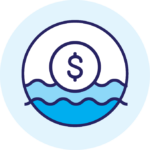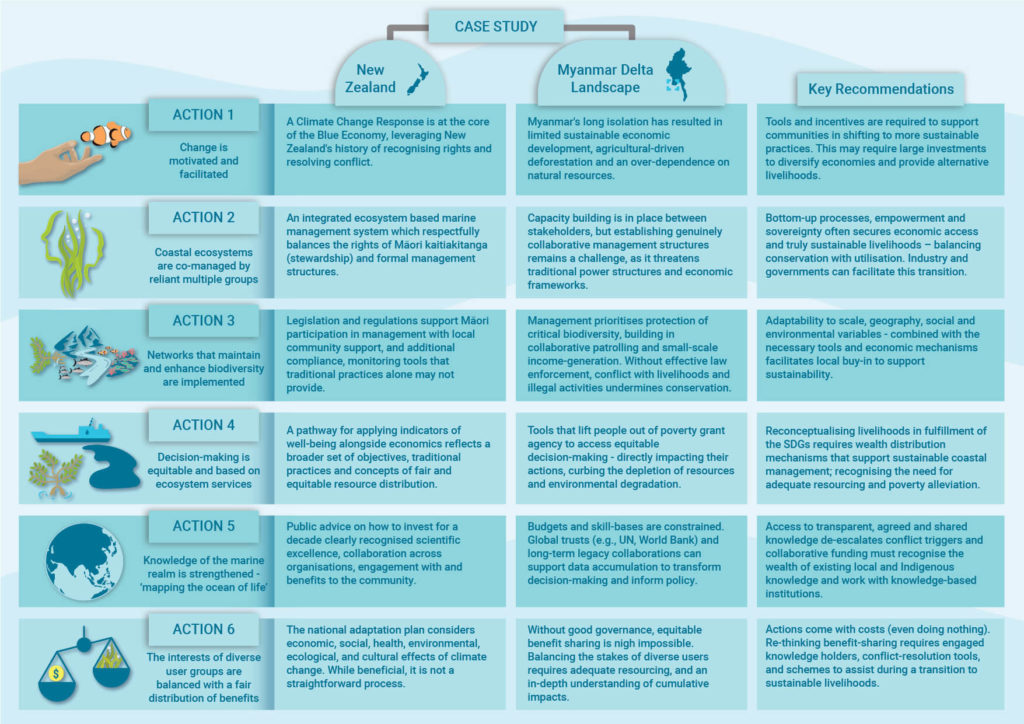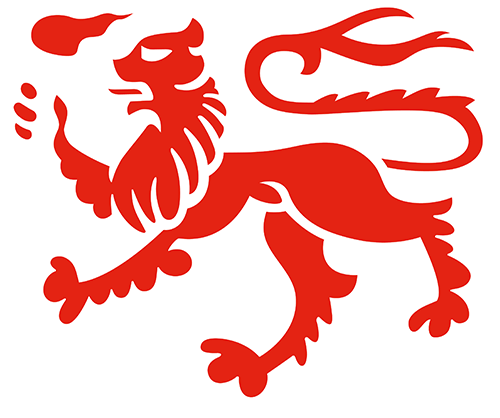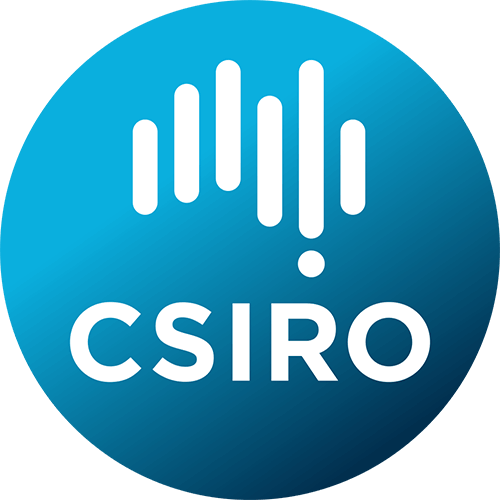Contact Us
#futureseas2030

7. Ocean Resource Use
Building the blue economy
Summary
Humans have relied on coastal resources for centuries. However, current growth in population and increased accessibility of coastal resources through technology have resulted in overcrowded and often conflicted spaces. The recent global move towards development of national blue economy strategies further highlights the increased focus on coastal resources to address a broad range of blue growth industries. The need to manage sustainable development and future exploitation of both over utilised and emergent coastal resources is both a political and environmental complexity. To address this complexity, we draw on the perspectives of a multi-disciplinary team, utilising two in depth exemplary case studies in New Zealand and within the Myanmar Delta Landscape, to showcase barriers, pathways and actions that facilitate a move from Business as Usual (BAU) to a future aligned with the Sustainable Development Goals (SDGs) and the UN International Decade of Ocean Science for Sustainable Development 2021–2030. We provide key recommendations to guide interest groups, and nations globally, towards sustainable utilisation, conservation and preservation of their marine environments in a fair
and equitable way, and in collaboration with those who directly rely upon coastal ecosystems. We envision a sustainable future driven by conflict mitigation and resolution, where:
(i) Change is motivated and facilitated
(ii) Coastal ecosystems are co-managed by multiple reliant groups
(iii) Networks that maintain and enhance biodiversity are implemented
(iv) Decision-making is equitable and based on ecosystem services
(v) Knowledge of the marine realm is strengthened—‘mapping the ocean of life’
(vi) The interests of diverse user groups are balanced with a fair distribution of benefits
Infographic

Lead Investigators

Dr Narissa Bax
Institute for Marine and Antarctic Studies / CMS

Dr Camilla Novaglio
Institute for Marine and Antarctic Studies / CMS
Anchor

Prof Chris Carter
Institute for Marine and Antarctic Studies / Blue Economy CRC
Co-Authors
Meet our fellow team members who contribute to the success of this project.

Kelli Anderson
Institute for Marine and Antarctic Studies, University of Tasmania

Cayne Layton
Institute for Marine and Antarctic Studies / CMS

Koen Meyers
AP University of Applied Sciences and Arts Antwerp, Antwerp, Belgium

Joy McCann
Australian National University, School of History / Centre for Environmental History

Karen Alexander
Institute for Marine and Antarctic Studies / CMS

Stewart Frusher
Institute for Marine and Antarctic Studies / CMS

Sarah Jennings
CMS

Yannick Rousseau
Institute for Marine and Antarctic Studies / CMS

Melissa Nursey-Bray
University of Adelaide

G. Reza Emad
Australian Maritime College, University of Tasmania

Kimberley Maxwell
University of Waikato, New Zealand

Beth Fulton
CSIRO Oceans & Atmosphere/ CMS / Blue Economy CRC

Mibu Fischer
CSIRO Oceans and Atmosphere / CMS

Zau Lunn
Fauna & FLora International Myanmar Programme

future seas
FUTURE SEAS is a unique collaboration , spear-headed by the Centre for Marine Socioecology, of over 100 researchers from the University of Tasmania (UTAS), the Commonwealth Scientific and Industrial Research Organisation (CSIRO) and other institutions
Contact UsOther Links
Project flyerPartners
Copyright 2025 Future Seas.







